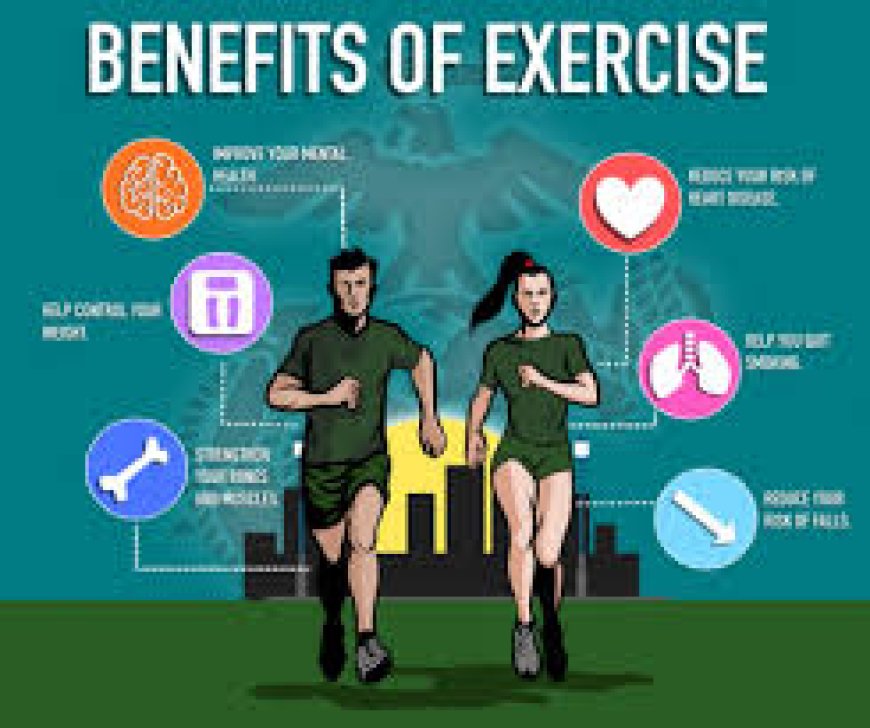What is Physical Fitness
Discover what is physical fitness and learn its key components for a healthier, more active lifestyle.

What's Your Reaction?







Ankit saini Dec 7, 2024 0
Kirti Rajput Mar 17, 2025 0
Join our subscribers list to get the latest news, updates and special offers directly in your inbox

What is physical fitness? It is defined as the capacity of your body's systems to work harmoniously, enabling you to maintain good health and efficiently perform everyday tasks. Being physically fit means accomplishing daily activities with minimal exertion. A fit individual is capable of managing academic responsibilities, fulfilling household chores, and still has the energy to engage in sports and recreational activities. Additionally, a physically fit person can effectively respond to everyday challenges, such as yard work, stocking shelves at a job, or participating in school activities like marching band. They are also prepared for emergencies, such as sprinting for help or assisting someone in need.
Physical fitness encompasses 11 components, divided into 6 health-related and 5 skill-related aspects. Each component is crucial for effective performance in physical activities, including sports. The health-related components are recognized for their significant role in reducing the risk of chronic diseases and enhancing overall health. These components include body composition, cardiorespiratory endurance, flexibility, muscular endurance, strength, and power. They not only contribute to overall health but also help individuals function effectively in daily life.
On the other hand, skill-related components of physical fitness are essential for excelling in sports and activities that require specific motor skills. For instance, speed is vital in track and field events. While these components are also associated with health, their connection is not as strong as that of the health-related components. For older adults, balance, agility, and coordination are particularly important for preventing falls, which is a significant health concern, while reaction time can influence the risk of accidents.
Consider a runner as an example. While she may excel in long-distance running, which showcases her cardiorespiratory endurance, this does not necessarily mean she is fit across all six health-related fitness components. Similarly, you might find that you are stronger in some areas than in others. The feature titled "The Six Parts of Health-Related Fitness" elaborates on each aspect and encourages you to assess your own fitness levels in these areas.
Interestingly, power, previously categorized as a skill-related component, is now recognized as a health-related component of fitness. A report from the Institute of Medicine highlights the correlation between physical power and overall health, indicating that power can contribute to a higher quality of life, reduced risk of chronic diseases, and improved bone health. Activities that enhance power are especially beneficial for children and adolescents, promoting healthier bone development.
To maintain good health, it is essential to strive for fitness in all six health-related components. Individuals who are well-rounded in these areas are less prone to hypokinetic conditions, which are health issues stemming from inadequate physical activity, such as heart disease, hypertension, diabetes, osteoporosis, and obesity. Being physically fit also leads to enhanced wellness—those who are fit tend to feel better, look better, and have more energy. It’s important to note that you don’t have to be an elite athlete to enjoy good health and well-being; engaging in regular physical activity can boost anyone's health-related physical fitness.
Just like our runner may not excel in all health-related areas, she may also have varying abilities in the skill-related components of physical fitness. Different sports demand different skill sets; for instance, a figure skater may possess exceptional agility but struggle with reaction time. Individual differences in natural abilities can affect performance in various areas. Regardless of how you rate in these skill-related components, engaging in some form of physical activity is always beneficial.
Remember, achieving good health isn’t solely based on skill-related fitness. It primarily stems from participating in activities that enhance your health-related physical fitness, a pursuit that can be enjoyable for both proficient athletes and those who feel less skilled.
As previously mentioned, health-related fitness has the advantage of not only promoting overall well-being but also improving performance in sports and activities. For example, cardiorespiratory endurance is vital for both heart health and performance in sports like swimming and cross-country running. Likewise, strength is essential for sports such as football and wrestling, muscular endurance plays a key role in soccer and tennis, flexibility is crucial for gymnastics and diving, and power is important in track events like the discus throw and long jump. Maintaining a healthy body fat percentage contributes to efficiency in various activities, making physical fitness an integral part of a healthy lifestyle.







gharjunctions Mar 21, 2025 0
